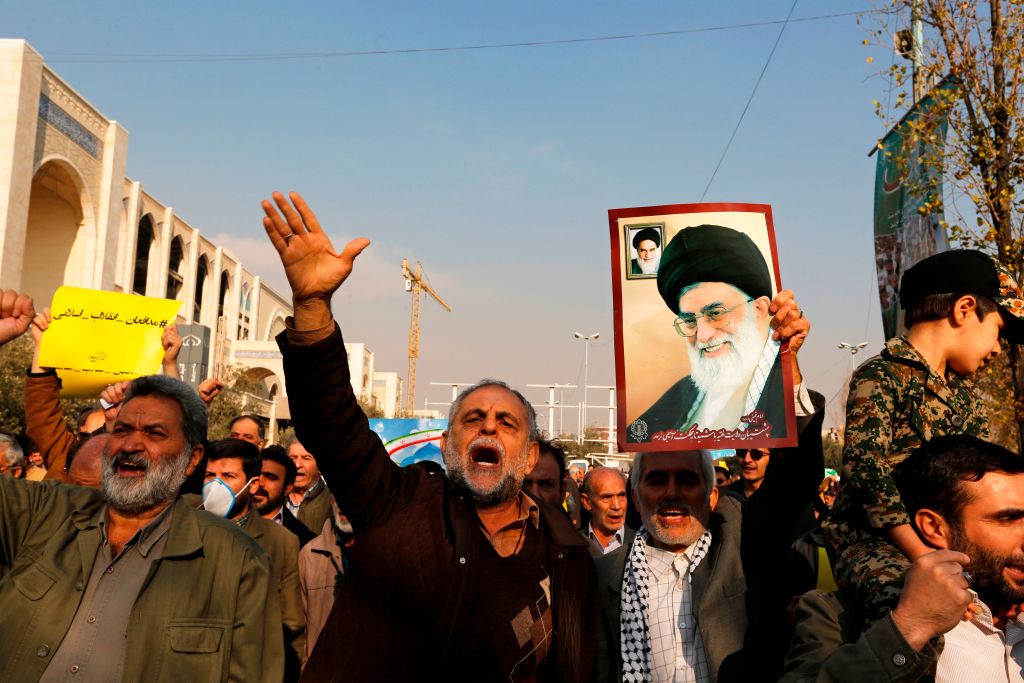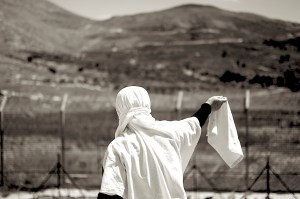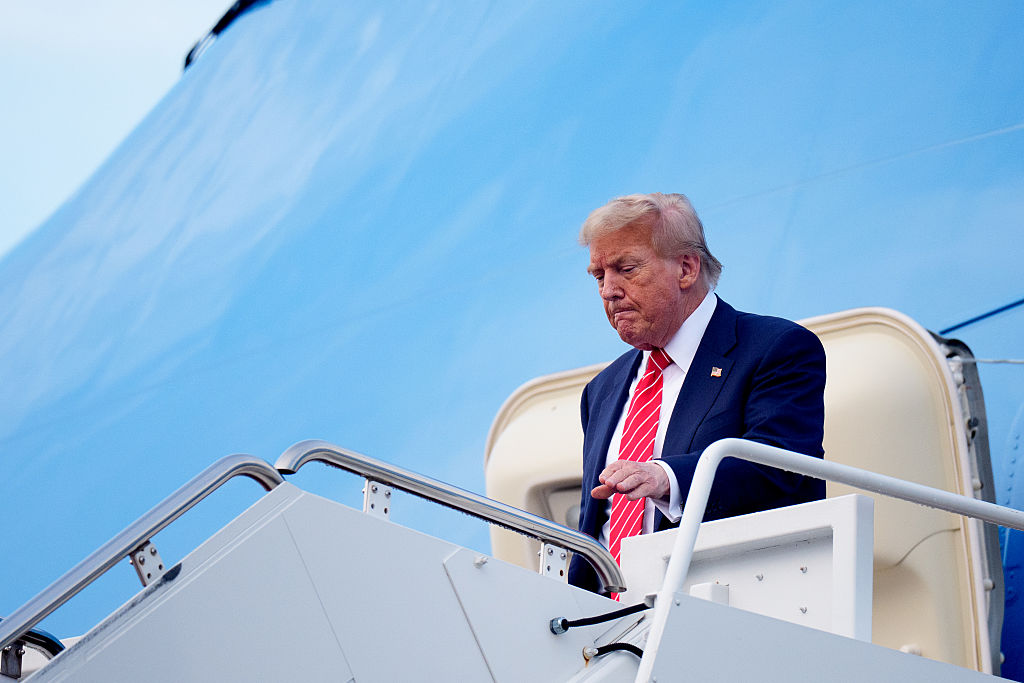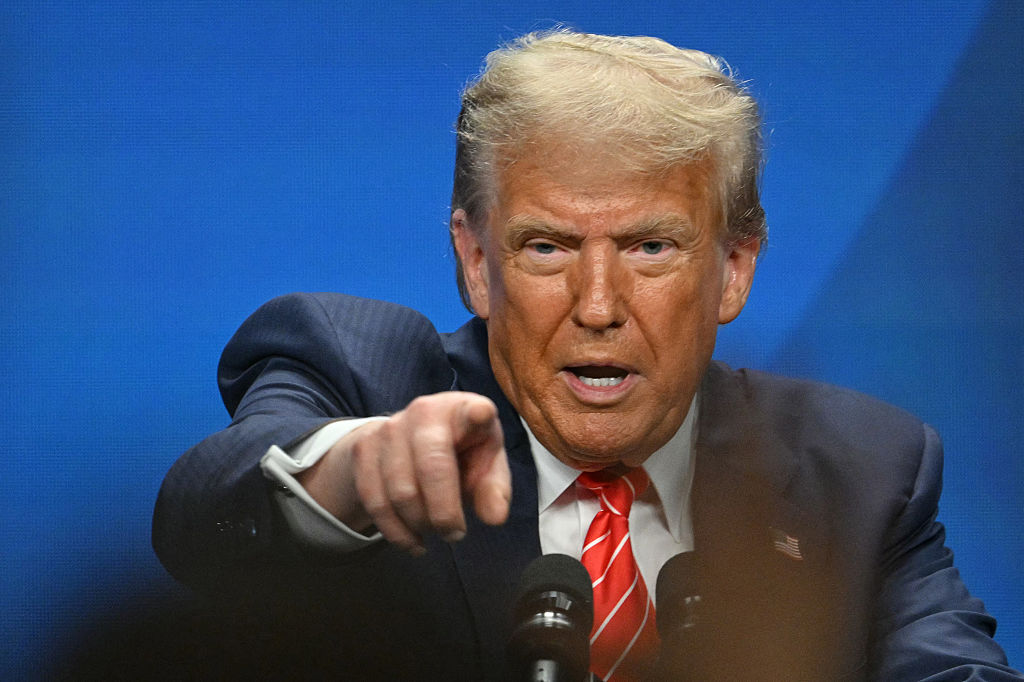With diplomats fearing that the Iranian nuclear talks will collapse, minds are inevitably turning to what happens the morning after.
In the realm of politics, this has amounted to buck-passing. Last week, White House press secretary Jen Psaki told journalists: “None of the things we’re looking at now…would be happening if the former president had not recklessly pulled out of the nuclear deal, with no thoughts about what might come next.”
In the real world, meanwhile, with regional peace in the balance, the stakes are rather higher. As the Biden administration’s softly-softly approach plunges towards global humiliation, American negotiators have been waking up to what should have been obvious from the start: you can’t build an effective Iran strategy with carrots.
From the start of the negotiations, when the ultra-dovish Special Representative Robert Malley dumped a whole vegetable farm on the table at once, one still, small voice insisted that nothing could be achieved without the threat of a serious multilateral stick. That was the voice of Jerusalem.
With the passage of time, Iran’s intransigence has caused the Western camp to slowly come around to this point of view. The Brits were the first to shift; now, as the talks reach the end of the road, the Americans are belatedly thinking again.
As the end of the month looms, Western diplomats are starting to sound a little more Israeli. The Jewish state has long been pushing two points. Firstly — as it has insisted since Obama’s talks — results will only be achieved from a position of power, not by dialing down the pressure. (Seems obvious, I know.) Secondly, Israeli intelligence has shown that the Iranians have been acting in bad faith, seeking to advance their nuclear program while stringing out the talks. Both of these points are looking to be proven right. And the Americans, Brits and others are starting to see it.
It is almost certainly too late for the negotiations to be saved. Robert Malley’s marshmallow strategy has seen to that. But we are where we are. In recent months, Israeli diplomats have pivoted to insist that Western powers plan to contain the fallout of the failure of negotiations, which the Israelis call a “controlled crisis.”
Let’s look at what we’ve got. Proper Western pressure on Iran would look like a three-legged stool. The first leg would be comprised of ultra-harsh economic sanctions. The second would represent political force via the International Atomic Energy Agency (IAEA), UN Security Council and other international bodies. The third would include regional deterrents, achieved by heating up the sense of threat among Iran’s neighbors, mainly in the Gulf. September’s visit of Israeli foreign minister Yair Lapid to the US Navy’s Fifth Fleet in Bahrain, where he was pictured clasping hands with the Gulf State’s foreign minister and the US Fifth Fleet commander, was an example of this.
So far, so good. But the seat of the stool — that which holds the legs together and exerts proper force through each of them — is the credible threat of full military action. This has been the weak point of American strategy throughout the negotiations. However, things have slowly begun to change.
Recently, increasingly robust rhetoric from Washington and London has been accompanied by more concrete signals. American warplanes, including B-52 long range bombers, have conducted increasingly frequent sorties over the Gulf, alongside Israeli and Saudi planes. Even more significantly, in October, the Department of Defense announced that a new, 5,000 pound bunker buster bomb had been successfully test-dropped from an Israeli-style F-15. All of this brings Washington closer to Jerusalem’s position, and shows that the White House is starting to take the doctrine of the stick more seriously.
It is possible that if — or when — talks fail, there could be an interim agreement. Iran’s nuclear progress could be frozen in exchange for a carrot or two, something that has been advocated by voices in the British camp.
If this doesn’t materialize, however, there would likely be a regional crisis. Partly, this would be powered by Tehran’s desire to stoke animosity towards the West in order to maintain the identity of the Islamic Revolution. Building a sense of national victimhood is a means of drumming up support for the regime, as it seeks to build an “economy of resistance,” or a closed, self-sufficient system of autarky. Also, it would be further cover for the regime’s continued progress towards nuclear armament.
In this crisis scenario, Iran would attempt to deflect Western pressure by sparking chaos throughout the region, targeting its neighbors — largely via proxies — on land and sea, launching cyber-attacks, and interrupting vital supply channels of energy.
The Israelis want the West to fully find its teeth before it’s too late. Over the past year, a string of Iranian provocations has gone unanswered. Tehran enriched its uranium to 20 percent. No response. It went to 60 percent. Nothing. It commenced advanced work on metallurgy. Nada. It expelled nuclear inspectors and shut down the IAEA operation in Iran. No reaction.
The Israeli doctrine of “controlling the crisis” would mean reversing this lethargy. With the negotiations over, every act of aggression from Iran would be punished using one or more legs of the stool, preventing the worst excesses of mischief and preserving a degree of regional stability. As one source told me: “there is still ammunition in the box.”
Both tactically and strategically, rousing Uncle Sam from his dovish stupor is vital. But it is important to recognize that this would not mean military action against Iran’s nukes, which would result in all-out war. In a best case scenario, a “controlled crisis” would force Iranian negotiators back to the table. There they would be confronted by a new, harder American strategy, super-softy Robert Malley having been defenestrated in the meantime.
This might have a chance of leading to a proper deal. The alternative is too horrid to contemplate.

























